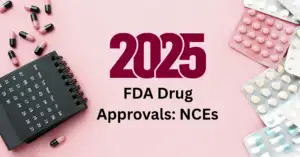Pharmacogenomics is a new area in the field of medicine. As the word suggests, it is the area that works as the link between the actions of the medicine based on genetic make-up of an individual. Thus, it is an extremely complex area that is still new and emerging. Pharmacogenomics therefore primarily focuses on how a person’s genetic makeup influences their response to drugs. The world population is diverse and mixed with several ethnic and racial differences leading to varied genetic pools. Thus, these studies need to be specific, precise and customized. Several countries are still debating about the utility of pharmacogenomic treatment and evaluating the risk and benefits of its mass usage. Hence, the regulations remain country specific and are still evolving. Pharmacogenomics continues to remain experimental in nature, inviting guidelines and regulations that can be applied in clinical practice and research. Pharmacogenomics guidelines are developed to provide recommendations and best practices for the use of pharmacogenomic information in clinical decision-making. These guidelines are designed to assist healthcare providers in understanding how to interpret genetic test results and apply them to optimize drug therapy for individual patients.
Some of the key aspects of regulations covering pharmacogenomics include:
- Data Privacy and Protection: Given the sensitive nature of genetic information, regulations typically emphasize the need for strict data privacy and protection to ensure the confidentiality of patients’ genetic data and ethnicity.
- Informed Consent: Regulations often mandate that individuals be adequately informed about the implications of undergoing pharmacogenomic testing. This includes understanding how their genetic information will be used, the potential benefits, risks, and limitations, as well as any implications for management of their healthcare.
- Ethical and Legal Considerations: Regulatory frameworks often stress the importance of upholding ethical standards when using pharmacogenomic data. This includes ensuring that the use of genetic information does not lead to discrimination, stigmatization, or other forms of misuse.
- Quality Assurance and Validation: Regulations may require that pharmacogenomic tests meet certain quality standards and undergo validation to ensure their accuracy and reliability in predicting an individual’s response to specific medications.
- Integration into Clinical Practice: Regulatory guidelines are currently focusing on the integration of pharmacogenomic information into clinical practice with an aim to provide customized healthcare solutions to the patients. However, considering the intricate field of genomic studies, it is important for the healthcare professional to acquire certain proficiency in utilizing the pharmacogenomic information to an advantage for the patients. The danger of not being fully aware can put the life of the patient in jeopardy.
- Labeling and Drug Development: Regulatory authorities may require pharmaceutical companies to incorporate pharmacogenomic information into drug labeling, particularly if a drug’s efficacy or safety is influenced by genetic factors. This helps healthcare providers make informed decisions about prescribing medications.
- Research Ethics: Regulations often govern the ethical conduct of research involving pharmacogenomics, ensuring that studies involving human subjects adhere to established ethical principles and guidelines.
- Education and Training: Regulatory frameworks may emphasize the need for education and training programs to equip healthcare professionals with the knowledge and skills required to interpret and apply pharmacogenomic information in clinical settings.
Some of the key pharmacogenomics guidelines include:
- Clinical Implementation Guidelines: These guidelines offer recommendations on integrating pharmacogenomic testing into routine clinical practice. They provide insights into which genetic tests are appropriate for specific medications, how to interpret test results, and how to adjust treatment plans based on the genetic information obtained.
- Testing and Interpretation Guidelines: These guidelines focus on the proper conduct of pharmacogenomic testing, including recommendations for selecting appropriate tests, sample collection and handling, and interpretation of test results. They may also cover issues related to test accuracy and reproducibility.
- Drug-Specific Guidelines: Some guidelines are tailored to specific drugs or drug classes, offering insights into how pharmacogenomic information can be used to guide drug selection, dosing, and monitoring for specific medications. These guidelines often provide information on the genetic variants that are relevant to drug response and offer recommendations for adjusting treatment based on these variants.
- Education and Training Guidelines: These guidelines emphasize the importance of educating healthcare providers about pharmacogenomics. They may provide recommendations for educational curricula, training programs, and resources to enhance healthcare professionals’ understanding of pharmacogenomic principles and their application in clinical practice.
- Ethical and Legal Guidelines: Guidelines in this category address the ethical, legal, and social implications of pharmacogenomic testing. They provide recommendations on issues such as informed consent, patient confidentiality, data sharing, and the prevention of genetic discrimination.
- Research Guidelines: These guidelines focus on the conduct of pharmacogenomic research, providing recommendations for study design, participant recruitment, data analysis, and reporting of results. They often emphasize the importance of adhering to ethical standards and obtaining appropriate regulatory approvals for research involving human subjects.
In conclusion, it’s important for healthcare providers to stay updated with the latest pharmacogenomics guidelines from reputable organizations and regulatory bodies, such as the Clinical Pharmacogenetics Implementation Consortium (CPIC), the Dutch Pharmacogenetics Working Group (DPWG), and the U.S. Food and Drug Administration (FDA), among others. These guidelines can serve as valuable resources for informed decision-making in clinical practice. It is utmost important to educate the patients and to make them aware of these new treatment modalities, its benefits, risks and current experimental status. It is essential to consult the specific guidelines and regulations of the country in question, as these may vary significantly depending on the region and the country. The field of pharmacogenomics is fascinating and still evolving. There are several unanswered questions and unknown risks. The advancement of scientific knowledge in the area will govern the rules, regulations and guidelines.





